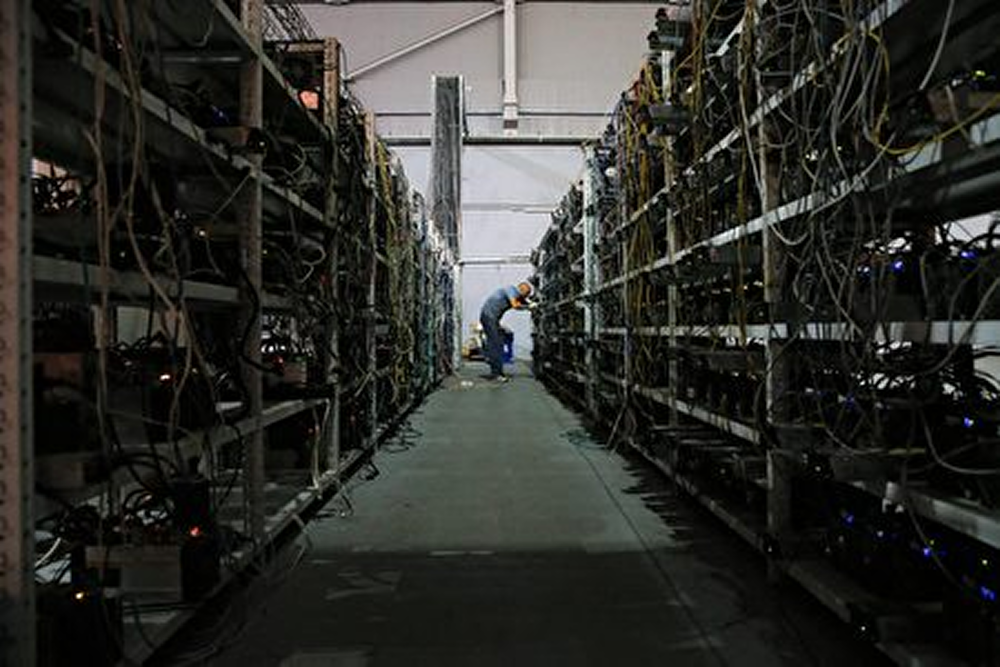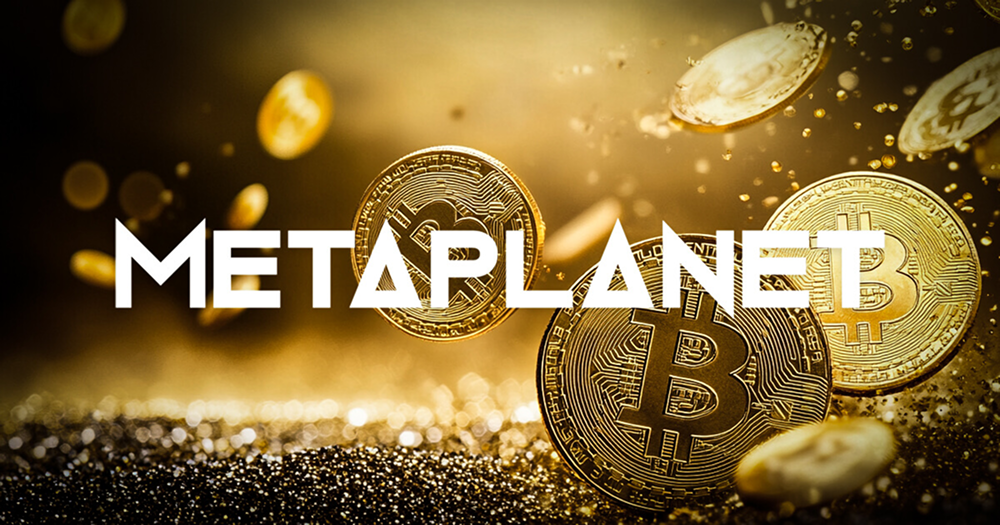In 2025, Bitcoin is no longer a fringe asset but an important variable in the global financial landscape. A series of data revealed by Bitcoin Magazine CEO David Bailey in a recent interview outlines the accelerated penetration of Bitcoin at the national, institutional, and corporate levels: approximately 50 countries are participating in Bitcoin mining through public-private partnerships, 700,000 Bitcoins are held by related securities, and MicroStrategy's asset securitization strategy is being emulated by over 200 companies worldwide. Bitcoin is gradually transforming from a "speculative asset" to a "strategic reserve," and the global financial system may be on the brink of a profound transformation driven by cryptocurrencies.
50 Countries Mining: Bitcoin Mining as a National Strategy
Bailey disclosed that currently about 50 countries are participating in Bitcoin mining through public-private partnerships, with mining scales ranging from hundreds of megawatts to gigawatts. This number has significantly increased compared to 2024. Bhutan's case is particularly noteworthy, as its Bitcoin mining revenue accounts for over 50% of its GDP, becoming a pillar of its economy. Similarly, countries like Malaysia and Argentina are leveraging low-cost electricity and policy support to accelerate the development of the mining industry.

According to a report by CoinDesk on April 15, 2025, the Malaysian government has attracted several international mining companies through tax incentives, and it is expected that by 2026, its Bitcoin mining computing power will account for 8% of the global total. Argentina is utilizing the abundant geothermal energy in the Andes region to create a "green mining" pilot project, attempting to find new solutions amid the energy crisis. Analysts point out that Bitcoin mining not only brings foreign exchange income to these countries but also promotes the upgrading of energy infrastructure. Bhutan has optimized its power distribution network through hydropower-driven mining projects, indirectly improving rural electrification levels.
However, the mining boom has also sparked controversy. Environmental organizations criticize the high energy consumption of mining as a threat to climate goals, especially in countries reliant on fossil fuels. In response, Bailey stated that the mining industry is rapidly transitioning to renewable energy, with about 60% of Bitcoin's computing power coming from clean energy sources like hydropower and wind energy in 2025, a significant increase from 45% in 2023.
700,000 BTC Securitized: Globalization of the MicroStrategy Model
Another key data point mentioned by Bailey is that approximately 700,000 Bitcoins (accounting for 3.3% of the total supply) are currently held by Bitcoin-related securities. This figure includes holdings in ETFs, trusts, and corporate balance sheets, highlighting the deep involvement of institutional capital. MicroStrategy is undoubtedly a pioneer of this trend, as its "Bitcoin is King" strategy has fundamentally rewritten corporate financial reporting logic since 2020.
According to a report by TheStreet on April 22, 2025, MicroStrategy held 478,000 Bitcoins as of March 2025, accounting for nearly 70% of the global corporate holdings. Its "21/21 Plan" continues to accumulate through $4.2 billion in equity and debt financing, with its stock price soaring over 700% in the past year. This model transforms the volatility of Bitcoin into an amplifier for corporate valuation through asset securitization, attracting global companies to follow suit. Bailey revealed that about 200 publicly traded companies are adopting similar strategies, including Japan's Metaplanet and South Korea's Hana Financial.

Metaplanet is particularly noteworthy. A PANews report on May 1, 2025, indicated that the company has included Bitcoin in its balance sheet since 2024, holding 12,000 Bitcoins worth approximately $1.2 billion as of March 2025. Its CEO, Simon Gerovich, stated that Bitcoin is not only a hedge against inflation but can also create excess returns for shareholders through market volatility. This strategy has made Metaplanet a new favorite in the Japanese capital market, with its stock price rising 350% within the year.

Sovereign Wealth Funds Entering: Bitcoin as National Asset
Bailey predicts that in 2025, more sovereign nations will purchase Bitcoin through sovereign wealth funds or other forms. This trend is already beginning to emerge. On March 12, 2025, Bitcoin Magazine reported that the U.S. government is advancing its Bitcoin strategic reserve plan at "technology speed," planning to incorporate 88,000 Bitcoins into its reserves. Norway's sovereign wealth fund (NBIM) has also inadvertently become an indirect holder of Bitcoin, with its Bitcoin exposure reaching 3,821 Bitcoins worth approximately $400 million by the end of 2024 through investments in companies like MicroStrategy and Coinbase (The Block, April 30, 2025).
Additionally, Saudi Arabia and Qatar are considered potential Bitcoin buyers. A CNBC report on April 10, 2025, noted that Saudi Arabia's sovereign wealth fund PIF has recently engaged with several crypto investment institutions to explore Bitcoin's role in diversified investment portfolios. Analysts believe that Middle Eastern countries may view Bitcoin as a tool to counter dollar hegemony and geopolitical risks.
Future Outlook: Opportunities and Challenges
The global Bitcoin craze undoubtedly opens new windows for financial innovation, but challenges are equally severe. Regulation remains the biggest uncertainty. Although the U.S. introduced a relatively clear regulatory framework for crypto assets in February 2025 (Forbes, February 5, 2025), global policy coordination is still a long way off. Strict regulations in the EU and China may limit Bitcoin's liquidity in these markets. Furthermore, the high volatility of Bitcoin prices poses risks to the balance sheets of companies and nations. The case of MicroStrategy illustrates that if Bitcoin prices plummet by more than 80%, companies may face debt default crises.
Despite this, Bailey remains optimistic about the future. He believes that Bitcoin's decentralized nature and scarcity give it unique value amid global economic turmoil. "When trust collapses, Bitcoin is the only means of value storage that does not rely on third parties," he stated in the interview.
Conclusion
From the mining boom in 50 countries to the securitization of 700,000 Bitcoins, and the quiet entry of sovereign wealth funds, Bitcoin is reshaping the global financial landscape. MicroStrategy's successful model has not only ignited corporate enthusiasm but also provided new strategic ideas for nations. However, the success or failure of this crypto revolution depends on the interplay of technology, policy, and market dynamics. As Bailey said, "Bitcoin is not the answer, but it is a beginning."
This article represents the author's personal views and does not reflect the position or views of this platform. This article is for informational sharing only and does not constitute any investment advice to anyone.
Join our community to discuss this event
Official Telegram community: t.me/aicoincn
Chat room: Wealth Group
免责声明:本文章仅代表作者个人观点,不代表本平台的立场和观点。本文章仅供信息分享,不构成对任何人的任何投资建议。用户与作者之间的任何争议,与本平台无关。如网页中刊载的文章或图片涉及侵权,请提供相关的权利证明和身份证明发送邮件到support@aicoin.com,本平台相关工作人员将会进行核查。




